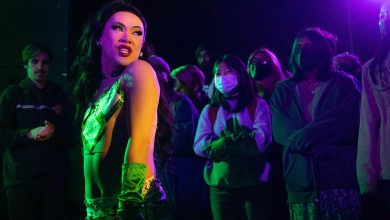The Ugly Side of Atheism

Illustration by Mrinaalika Sivakumar.
I remember the moment I began to question the compatibility of my feminism and my atheism. It was around 2011 or 2012; I watched a Youtube video by an atheist blogger I admired at the time. In this video he criticized a woman who was condemning the treatment of women in video games. He accused her of being an extremist and attacked her for disabling the comments on her videos.
I later learned that the woman he was attacking was Anita Sarkeesian, a prominent feminist pop culture critic, as famous for her content as she is for the rape and death threats she receives because of it.
As the video went on I had a creeping feeling that he wasn’t attacking this woman, but that he was attacking me. I heard this person, whom I admired, denounce my own experiences as a woman by claiming that women are not subjugated or objectified. I sought out an online community of atheists and skeptics because I felt I didn’t have an outlet for my non-religious beliefs, but hearing this from a member of that community felt like a betrayal.
Let me pause here to say that this article is not meant to put down religion. It is often a sensitive subject and I respect that religion is an important part of many people’s lives. I am not here to tell anyone what to believe, but to relate my experiences as a feminist and an atheist.
There is nothing inherently anti-feminist about atheism. In fact, feminism and atheism should go hand in hand. Many atheists are condemning the outdated sexist, racist, and homophobic language that exists in many religious texts.
Both feminism and atheism are born of questioning tradition. They are ideologies centered on the rejection of established norms. Feminism and atheism are, at least theoretically, progressive ideologies centered on leaving behind outdated views of gender and morality respectively, in order to move forward as a society.
Finally, as atheists—a group that is banned from holding public office in seven states and considered one of the most continually distrusted groups in the US—we know how it feels to be marginalized. If we’re not rapists or car thieves, we’re pitied for our lack of faith. “Coming out” as an atheist in America often means ostracization from family and friends. I’m pretty casual about my non-beliefs; it’s not one of the most defining parts of my identity. Despite this, I didn’t feel comfortable opening up to my friends about them until high school because most of them were religious, and even now I tend to hide them from people I meet.
Based on the similarities in our progressivism and experiences as a marginalized group, it makes sense for atheists and feminists to be colleagues in resistance to the status quo. In reality, though, we see influential atheists like Richard Dawkins, Sam Harris, Penn Jillette, and Christopher Hitchens downplaying sexual harassment, calling women “cunts,” claiming “women aren’t funny,” and committing physical sexual assault.
It’s not like feminism and atheism don’t have a history together. Elizabeth Cady Stanton was a vocal critic of organized religion and religious superstition. Ernestine Rose blamed religion and capitalism for women’s oppression. Simone de Beauvoir criticized religion as repressive of women. In 2001 and 2009 respectively, feminist writers Katha Pollitt and Ursula K. Le Guin won the Emperor Has No Clothes Award, an award celebrating “plain speaking” on the shortcomings of religion. Many feminists have been atheists and vice versa since the beginning of feminism.
However, New Atheism—the politically-charged, antitheist form of atheism that arose in the early 2000s—seems to have brought the aggressive and intolerant fringe of the movement out of the woodwork and onto online platforms, like Reddit and Youtube. Led by Dawkins, Hitchens, Harris, and others, they tend towards anti-feminism and Islamophobia.
Despite being generally regarded as leaders of the skeptic community, these men by no means represent atheists as a demographic. In reality, atheists as a whole tend more towards the feminist side of feminist issues. According to a 2014 Pew Research poll, 87 percent of atheists in the United States said abortion should be “mostly or entirely” legal and 84 percent said that having more women in the workforce was a change for the better. Hitchens, one of the most famous and vocal atheists until his death in 2011, was against both. His outdated and misogynistic views do not represent atheists.
The problem isn’t that atheism needs women or that feminism needs atheists, but that nonreligious women like me are not welcomed in skeptic circles and our experiences are belittled. I grew up in a non-religious family in a liberal city where, though sometimes I didn’t feel comfortable being open about my beliefs, I never felt threatened. I’m lucky, but where does the girl with the religious family in the conservative town find support, when she sees that the people who share her beliefs also trivialize her struggles?
As an atheist I distanced myself from religion partly because of the misogyny, racism, and homophobia perpetrated by religious texts and religious leaders. Though I knew then (as I do now) that the vast majority of religious people don’t follow those teachings anymore. Likewise, though the majority of atheists are progressively-minded, the most vocal atheists have driven me to avoiding conversations about religion for fear of offending someone. I still identify as an atheist and I probably always will. But whenever the topic of religion comes up I feel the need to defend myself, as if being non-religious is something to be ashamed of.
I don’t want to be grouped together with the atheists who loudly condemn Islam for oppressing women while ignoring accusations of sexual harassment. I have to make it known that I am in no way associated with the atheist online trolls following in the footsteps of the blogger I mentioned before; attacking and threatening Anita Sarkeesian while hiding behind their computer screens.
I’m pretty casual about my non-beliefs and I don’t think it’s one of the most defining parts of who I am. But it’s still frustrating when the New Atheists make the non-religious look like misogynists and Islamophobes. I’m secure in my beliefs, but until the loudest members of the atheist community stop perpetrating misogyny, I don’t know if I’ll ever feel comfortable being open about them.




